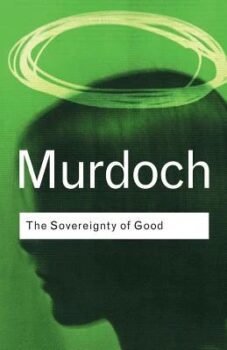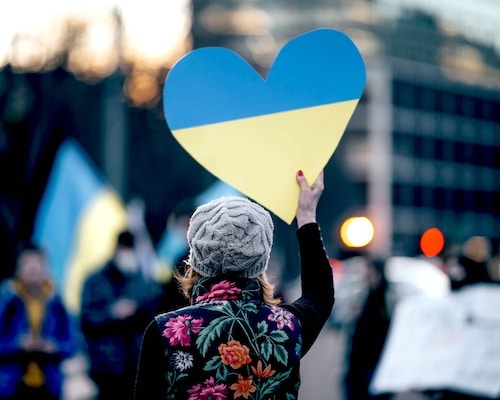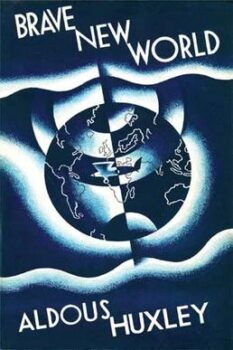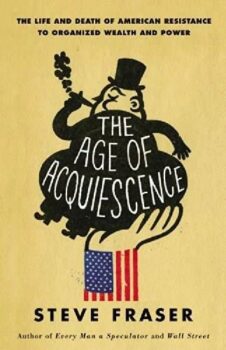The other day I ventured forth from my remote village to a lively market town called Great Barrington to shop for Easter lunch–spring lamb, a decent bottle of Bourgogne. Easter is much marked in my household, one of the few feasts we allow ourselves, and it is a reminder this year of a truth that could scarcely be more pertinent to our shared circumstances: After all our small and large crucifixions, there is new life to come.
Great Barrington lies in the Berkshire Hills of western Massachusetts, a fashionable little burg dense–as you can tell simply by walking around in it —with righteous liberals. No place, you remind yourself, is perfect.
And there along the streets and avenues as I arrived were what I had anticipated: Ukrainian flags hanging off front porches, in shop windows, on flagpoles just below the Stars and Stripes. Somebody has painted the bit of board displaying their house number in the blue and yellow we all now recognize. Father, forgive them, I thought, for they know not what blood-soaked horrors and hate-filled killers they enthusiastically endorse.
Not in my lifetime have Americans, purporting to be thoughtful, intelligent people, been so wide-eyed, so stupefied as those who are pretending to lead them and to inform them by seeking to bury them in ignorance.
We now read that investigators are diligently “documenting the catalog of inhumanity perpetrated by Russia’s forces in Ukraine”–a U.S. diplomat’s remark. Nobody stops to think the investigators are all from nations that are acting against Russia.
“Where else should they come from?” they shrug in Great Barrington.
Nobody notes that the essential question has been crudely removed from public discourse as these sham investigations get under way. The atrocities in Bucha, Mariupol and elsewhere are beyond all dispute, but we must never ask who is responsible for them.
I hear the good citizens of Great Barrington quaking with rage as The New York Times convicts the Russian leadership, as our president describes the Bucha tragedy as a Russian war crime not two hours after it came to light.
We now read, in Friday’s editions of the Times, all about the joint American–Ukrainian campaign to inundate Russian discourse with propaganda intended to demoralize the public. The government-supervised Times explains,
Radio Free Europe/Radio Liberty, a U.S.–funded but independent news organization founded decades ago, is trying to push its broadcasts deeper into Russia.
U.S.–funded but independent. Priceless, and don’t miss the slide into passive voice to avoid the truth, a recurrent Times trick I have grown very fond of–“founded decades ago.”
Radio Free Europe was founded by a C.I.A. front Allen Dulles cooked up in 1949, the National Committee for a Free Europe. It received agency funding until at least the 1970s, when the funding function was transferred elsewhere in the Washington bureaucracy for the sake of appearances.
What RFE/RL is doing in Russia today is exactly what American liberals, in paroxysms of horror, accused Russians of doing during the 2016 election campaigns. But it is O.K. because we’re doing it, they say in the charming bistros along Railroad Street. We must fight for democracy.
Brute Censorship
We are not reading in the corporate press, by contrast, that a new wave of brute censorship is now upon us, as social media such as Twitter, Facebook and YouTube “suspend,” “cancel,” “de-platform”–whatever this radically antidemocratic business is called–dissenting writers and analysts who have taken the trouble to examine the facts on the ground in Ukraine such as we have them with professional disinterest.
We must defend democracy at home, the good of Great Barrington insist, just as we must in Ukraine.
Since the Russiagate farrago overcame liberal America in 2016, there has been much debate as to whether our McCarthyesque circumstances are as bad as, similar to, or not as bad as things got during the Cold War decades.
This no longer seems to me the useful question. In various important ways we have passed beyond even the worst of the Cold War’s many dreadful features.
Our better reference is Aldous Huxley’s Brave New World, wherein the English novelist pictured a society of incubated beings–programmed from birth, hooked on a happiness-inducing drug called soma, devoid of everything we now consider human, wholly incapable of connection, of responsibility, and, indeed, desiring neither. Infantile gratification is all that matters to those populating the World State Huxley imagined–such as anything matters.
We are not there yet, let’s not exaggerate. But we ought to honor Huxley for his prescience, for we are heading in the direction of his unlivable world of mind-deprived children watched over by a small, chosen, diabolic elite.
I am not surprised that it is Ukraine that brings us to what I consider a collective psychological crisis. After 30 years of post–Cold War triumphalism, Washington has decided to use Ukraine and its people in a go-for-broke attempt finally to subvert Russia. Stepping back for a better look, this is the decisive event in the imperium’s confrontation with the 21st century–its grand roll of the dice, its now-or-never moment.
Broke it will be when all this is over, however far in the future that will prove. A little like Cú Chulainn, the Irish hero who drowned swinging his sword in a rage against the incoming tide, we cannot win this one. And we are falling apart as the realization of our loss arrives subliminally among us.
Whoever wins the war in Ukraine, the non–West will win. Whoever wins, the 21st century will win, burying the mostly awful 20th at last. As for Americans, we have already lost.
Our Condition
What of our condition, then? What has become of us, why, and what shall we do about it? If I am correct about America’s psychological crisis, its connection to the on-the-ground, in-our-faces crisis in Ukraine is not immediately apparent.
Huxley wrote Brave New World in 1931 and published it a year later. Let us take the cue. Let’s look back to consider the thoughts of a few people who, unlike most of us, took life seriously and so applied themselves to an understanding of their time.
Steve Fraser brought out The Age of Acquiescence in 2015. Fraser is among the best labor economists now active, an honorable man of the 1960s, and his subtitle tells us his line of inquiry: The Life and Death of American Resistance to Organized Wealth and Power. Why and when, Fraser wanted to discover, had American workers rolled over in surrender? What happened to all those fine New Dealers who, with good minds, fought hard for the kind of society they knew was possible?
Labor isn’t our topic, but his book has implications far beyond his specific interests.
Fraser situates himself “peering back into the past at a largely forgotten terrain of struggle.” The New Deal years, the battles waged against the anti–Communist paranoia of the postwar decades, the antiwar movement of the 1960s and early 1970s: The people animating these movements had memories and experience.
They remembered what American society could be in its potential because they had lived for and acted on that potential. They knew another kind of America was possible.
Most of us have forgotten all that. Younger people never shared that consciousness in the first place. Very few of us have any memory or experience of living under anything other than pervasive corporate domination and a government, in its profound corruption, that serves corporate capital and does as little as it can otherwise.
There is nothing to wage struggle for, in other words. Our relations with those who hold power over us are not very different from the relations Huxley’s children had with the sequestered elites who controlled their lives. This is the root of our prevalent assumptions.
The work of any social or political campaign worth mounting is now rendered too imposing even to attempt. It is best to acquiesce to power, contenting ourselves–as if we all live in Great Barrington–with finding the best olive oil.
Mass acquiescence largely leads us to an explanation of the preposterous support most Americans have for the criminal regime in Kiev. But we’re beyond Steve Fraser’s Age of Acquiescence now. Americans don’t merely acquiesce to all that the imperium imposes on the world–wars, interventions, collective punishments, assorted other deprivations. Americans actively embrace the conduct of empire.
Please pass the kale chips.
The Sovereignty of Good
Iris Murdoch, the minor English philosopher and second-rate novelist, published The Sovereignty of Good, a gathering of three essays on morality, in 1970. I would be pleased to observe that nobody reads this ridiculous book anymore and few take Murdoch’s philosophic ruminations at all seriously.
But Murdoch’s arguments in favor of a moral clarity that lies beyond dispute have a great deal to do with what we’ve become. Right and wrong and goodness are objective realities for Murdoch–and how too many of us now live.
Human beings have no purpose so far as Murdoch was concerned. There are no ideals to strive for, no telos to use the Greek term she preferred. People are innately selfish. “Our destiny can be examined but it cannot be justified or totally explained,” as she put it.
We are just here.
Here are a few snippets to give a taste of Murdoch’s prose and thinking:
It is more than a verbal point to say that what should be aimed at is goodness, and not freedom or right action….
The Good has nothing to do with purpose, indeed it excludes the idea of purpose.
I assume that human beings are naturally selfish and that human life has no external point or telos…. The psyche is a historically determined individual looking after itself…. The area of its vaunted freedom of choice is not usually very great.
 As Murdoch sees it, there is but one thing to do as we sit stranded on the universe’s beach. We must recognize the inarguable reality of goodness and do our best to be good. This does not involve choices, as we have none to make. (Murdoch despised Sartre and the existentialists.) We are not, if I read Murdoch correctly, responsible for making judgments. Kindness, compassion, love–these are moral values, universal values. They’re all we’ve got.
As Murdoch sees it, there is but one thing to do as we sit stranded on the universe’s beach. We must recognize the inarguable reality of goodness and do our best to be good. This does not involve choices, as we have none to make. (Murdoch despised Sartre and the existentialists.) We are not, if I read Murdoch correctly, responsible for making judgments. Kindness, compassion, love–these are moral values, universal values. They’re all we’ve got.
Who decides what is good and worthy of kindness, and how? Who decides what is right and wrong? Murdoch didn’t address these essential questions because, being an empiricist, what is good, right, and wrong is simply there for us to see. “Good is non-representable and indefinable,” Murdoch writes–slithering, it seems to me, out the side door.
Here’s my question: Would Iris Murdoch have made an excellent “content monitor”–a censor this is to say–at YouTube? CEO at Twitter, maybe?
Readers may now suspect where all this is leading: to the main drag in Great Barrington. There we find people who are intent only on self-fulfillment and being good and kind and compassionate, while taking no responsibility for the events of their time because, after all, there is no purpose in life and “we are just here.” Being seen to be good and kind and compassionate is, of course, the essential thing. They too are empiricists.
Joe Biden denounced the Bucha atrocities at 10:30 am Eastern time on April 4, at the very moment word came of them. At that moment he could not possibly have had any knowledge of what had transpired. His reference here is to Russian President Vladimir Putin:
Well, the truth of the matter–you saw what happened in Bucha. This warrants him–he is a war criminal.… This guy is brutal. And what’s happening in Bucha is outrageous, and everyone’s seen it.
Pictures often require a thousand words and certainly they do in the Bucha case, but never mind that. The important thing is, we’ve all seen some images. It is a straight-ahead case of right and wrong: Ukrainians suffer. Let us be kind to them. Russians have intervened into their country. Let us condemn them.
Let us acquiesce. Let us be good.
Patrick Lawrence, a correspondent abroad for many years, chiefly for the International Herald Tribune, is a columnist, essayist, author and lecturer. His most recent book is Time No Longer: Americans After the American Century.



